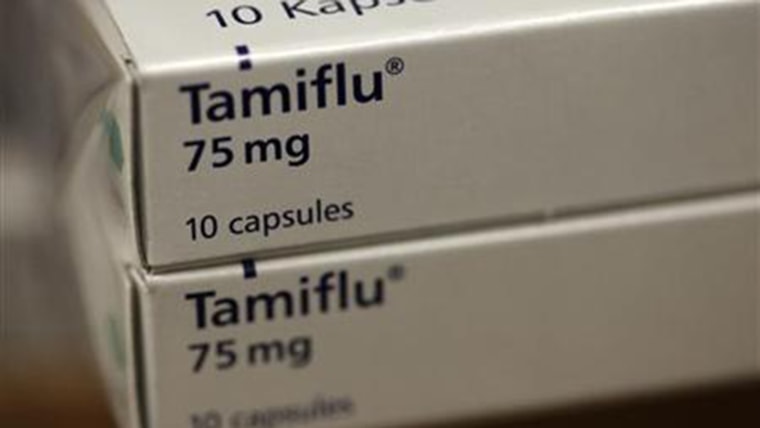The yearly flu epidemic hit early and hard this year, and what’s worse, this year’s vaccine doesn’t protect well against the most common strain. Doctors and health officials are left with little to tell patients except to wash their hands and take flu drugs.

But, just as the vaccines on the market don’t fight flu terribly well, neither do the antivirals. And that has both doctors and patients confused.
The Centers for Disease Control and Prevention says doctors should strongly consider prescribing Tamiflu to patients with flu or suspected flu, especially if they’re at high risk of complications — and even more so since the vaccine isn’t as protective as usual.
“We want people to know that so they know to call their doctor for antivirals if they are sick,” said Dr. Joe Bresee of the CDC’s flu division.
Antiviral drugs on the market include Tamiflu, a pill, Relenza, which can be inhaled, and an injectable drug called peramivir.
Even if the antivirals don’t cure flu the way an antibiotic can cure strep throat, they’re still useful, the CDC says. And unlike antibiotics, taking a flu drug for a few days won’t clean out the “good” bacteria in the digestive system, and it’s far less likely to cause side-effects. There’s also less chance of breeding drug-resistant “superbugs”, experts say.
But it’s a hard message to reconcile with the constant drumbeat message of “don’t overuse antibiotics”.
It’s something that pediatrician Dr. John Schreuder, of Mercer Island Pediatrics outside Seattle, has been struggling with. He’s worried that media coverage about Tamiflu, and advertising, are leading people to want the drug for every cold and sniffle.
“We do get a lot of calls from parents who have seen the ads on TV,” Schreuder said. “It becomes our job to talk them out of (wanting) it. We are talking about putting something on our website to help screen people and help give them guidance about when to come in.”
Schreuder was working this week to catch up on the latest research and recommendations about Tamiflu in between seeing patients. He’s not sure how useful it really is for otherwise healthy children.
All three flu drugs, in a class called neuraminidase inhibitors, work best when given within a day or so of symptoms starting.
“The tricky thing is you want to start it as soon as possible,” Schreuder told NBC News. “We get a lot of calls from people whose kids probably just have a cold or something like that, but it really is hard to tell early on.”
Meanwhile, for high risk-kids and the elderly the CDC says not to wait. It’s better to go ahead and take Tamiflu just in case.
People at especially high risk of complications from influenza include any baby under the age of 2, adults over 65, people with asthma, heart disease, diabetes, sickle cell disease, cerebral palsy, pregnant women, the morbidly obese and nursing home residents.
In fact, nursing home residents are so vulnerable that CDC advises dispensing Tamiflu if any cases of flu show up. The daily pill can prevent infection.
And CDC advises that it’s OK to give Tamiflu or Relenza to healthy patients, also. “Antiviral treatment also can be considered for any previously healthy, symptomatic outpatient not at high risk with confirmed or suspected influenza on the basis of clinical judgment, if treatment can be initiated within 48 hours of illness onset,” CDC advises on its website.
Schreuder says he also takes into consideration who else a kid might infect. “Sometimes a family members – an infant or an elderly grandparent – would benefit,’ he said. In that case, it makes more sense to prescribe an antiviral to an otherwise healthy child, he said.